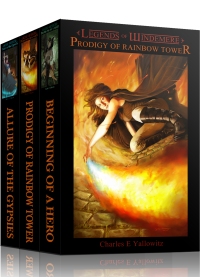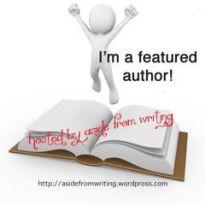Forgot to put the video above on Monday’s post, but people don’t click on these anyway. I might just have repeatedly play while I type this up.
This is fairly simple. Most, if not all, of us are readers. We have thoughts on books whether we write them or not. It’s a fun hobby and a way to relax for many. Yet, I’m sure we all have different thoughts and feelings on the topic. For example, I feel that writing is essential because it is at the core of everything else we do. There’s no way to excel without reading unless you find cheats. That being said, I’m going to open up the floor for the three questions.
- Why do you feel reading is important?
- What would you say to get someone into reading?
- How would you help someone learn to read?
I was going to ask about favorite books, but I know most will say ‘too many to choose’ and it’ll be a bunch of lists. I feel this will get people thinking more and maybe help others out if we’re lucky.





A great topic.
1. Why do you feel reading is important?
It helps build the imagination, which is the stepping stone to great inventions.
2. What would you say to get someone into reading?
Maybe start by asking why that person doesn’t read. Maybe reading seems like a chore. I know some kids who would rather play a video game because reading seems too “slow and boring” (in their words) and video games make them feel more active. I play video games. I find it difficult to pick up a book after playing a game for, say, an hour or more. I have to have transition time so that my thought processes slow down enough to appreciate a book.
3. How would you help someone learn to read?
I would start with a graphic novel. The combination of text and pictures is so inviting. Some adults have a prejudice against them though, deeming them “for kids.” But there are so many great graphic novels out there. This is a great stepping stone toward reading.
Another way to start is through poetry and other shorter works like short stories or flash fiction.
With kids, I found that reading books out loud to them was very helpful. On long car trips, I would read a book to my niece and nephew.
LikeLike
Excellent answers. I really like that you included graphic novels in your strategy. This is something I’ve been wondering about because it seems like an easy first step.
LikeLiked by 1 person
Thank you! 😊 I’m glad to see that many schools have included graphic novels in their curricula. And many have won awards–deservedly so.
LikeLike
I feel reading is important to keep the mind and imagination working.
To get someone into reading I would give them an idea of the good stories they are missing by not reading.
I would help someone learn to read by reading to them.
LikeLiked by 1 person
Excellent answers. 🙂
LikeLiked by 1 person
Why is reading important?
There are 2 types of reading–fiction and non-fiction.
Reading non-fiction improves the knowledge base of the individual, helps solve problems (like how to mend something, or grow a particular plant) helps with personal problems and helps with an individual’s personal growth.
Reading fiction helps the individual forget their daily problems and escape into a new world. They can ‘experience ‘ things they would not do in their everyday life. They can become the protagonist, and learn what it’s like to be someone else, which might induce empathy with others, or change a point of view.
Reading generally, helps with improving the individual’s own writing and speech, avoiding common gramatical errors.
What would you say to get someone into reading?
A difficult one, this. I’ve just sent my 14-year-old granddaughter an audio book of mine in the hope she will enjoy it and start reading. (Not necessarily my books, but it would be nice😄) I don’t think you can do it with words, though. You can say that in a book, you can imagine the characters as you wish, whereas in a film, you can’t. Example is the best way, and reading little extracts from the book you are reading might inspire curiosity.
How would you teach someone to read?
I had experience of this. I did Adult Literacy for a while. If we’re talking about adults, the problem is embarrassment. They don’t want to be seen reading children’s books. I ascertained he knew the letters first, which he did, and he could manage simple words.
I talked about the rulesof spelling that affect pronunciation. There are more than you think! I only remember i before e except after c, but that’s not even the end of that rule. It goes on to say ‘when the sound is ee’, but I learned no others at school. I think we just absorbed them.
There were simplified versions of well known books. I offered him James Bond ones. They had adult covers so if he wanted to read on the train, he could do so without people thinking he was reading a simplified book.
I used phonetics to teach. I still think that’s the best way to learn, whether adult or child.
LikeLike
1. I like this answer because it goes against a current trend. Many believe that non-fiction is the only way to go, especially when teaching children to read. Even if it’s not non-fiction, it’s always reality-based and designed to teach about various things. Escapism and stress relief from reading are never factored in. I think we assume people will grow up figuring that out, but it ignores how humans work. Make something feel like a chore and it’s less likely that a person will do it happily or willingly when older.
2. It is difficult. Totally a ‘lead a horse to water’ thing.
3. Didn’t even know there was a second part to that ‘i before e’ thing. Might explain why it doesn’t happen nearly as much as one would expect. Embarrassment is a good point here. We take reading for granted, so someone who can’t would feel like they’re behind or something. I like that simplified book idea. Where do you find those?
LikeLike
Reading exercises your brain in a way other media cannot. It also opens a door to choices that other formats cannot offer. A film version of something takes away the imaginative parts of reading. The Misty Mountains look like the producer said they look, but in the book you get to make your own images. An actor becomes the image of the character, but in a book that’s left to the imagination. Your brain works. There is selection that might not sell a million movie tickets, but are outstanding stories. To get someone started, you almost have to walk it back from more popular options. If you liked X movie, or Y video game, you’d probably love Z book. As far as helping a learner, I would probably find an expert somewhere.
LikeLike
Good point. A film/tv show does make it that whatever the director chooses is what you’re going to get. Same with actors, so you take away the audience’s chance to create their own version.
LikeLiked by 1 person
>Why do you feel reading is important?
From a coldly pragmatic POV, reading is power. Those who cannot read are at the mercy of those who can. People can tell them anything, and they won’t know if it’s true. Those who cannot understand what they’re reading, fact check, and so on, will always be prey for liars.
>What would you say to get someone into reading?
Exactly what I just said.
>How would you help someone learn to read?
Oh, you meant reading for FUN? I would ask them what they’re interested in and help them find something interesting on that topic.
LikeLike
I was going to agree, but my cynicism took over. I think modern times show that those who read can be at the mercy of those who don’t if the latter is influenced a certain away. Although, it’s more a matter of comprehension.
LikeLiked by 1 person